Einaudi Center for International Studies
Venezuelan Perspectives on U.S. Interventionism
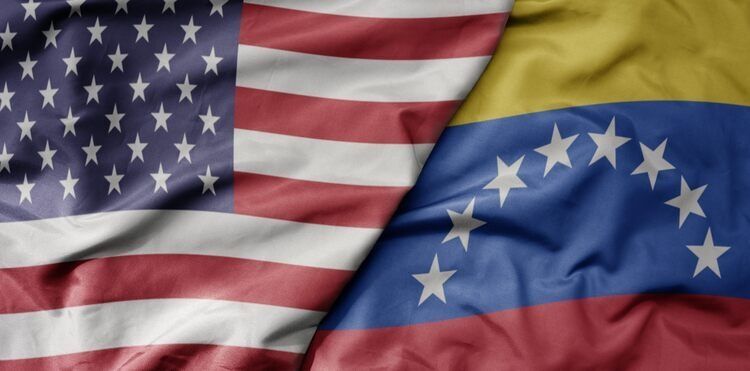
March 13, 2026
12:00 pm
Virtual
Recent U.S. military actions in Venezuela—including strikes on civilian boats, the seizure of oil tankers, and the abduction of President Nicolas Maduro—have raised questions about U.S. ambitions in Latin America and their implications for peace and international order. This panel brings together five prominent experts on Venezuelan history and politics, with the aim of deepening understanding of Venezuelan perspectives on recent events and their broader implications.
How are Venezuela’s political parties responding to shifting U.S. foreign policies? What are the likely effects of recent military actions on prospects for peace and stability in Venezuela and Latin America? Can the U.S. play a meaningful and legitimate role in helping Venezuelans restore democratic governance, and if so what policies might contribute to that goal?
Panelists
Irina Troconis, Professor, Cornell University (moderator)David Smilde, Professor, Tulane UniversityVeronica Zubillaga, Professor, Universidad Simón Bolívar, Caracas; Visiting Scholar, University of Illinois, ChicagoColette Capriles, Professor, Universidad Simón Bolívar, CaracasAlejandro Velasco, Professor, New York UniversityMargarita López Maya, Professor, Universidad Central de Venezuela
Register
Register here to join the virtual conversation.
***
Event Hosts
This virtual event is hosted by the Reppy Institute for Peace and Conflict Studies and cosponsored by the Latin American and Caribbean Studies Program. Both are part of the Einaudi Center for International Studies.
Additional Information
Program
Einaudi Center for International Studies
Reppy Institute for Peace and Conflict Studies
Latin American and Caribbean Studies
Migrations Program
Writing a Winning Fulbright Proposal
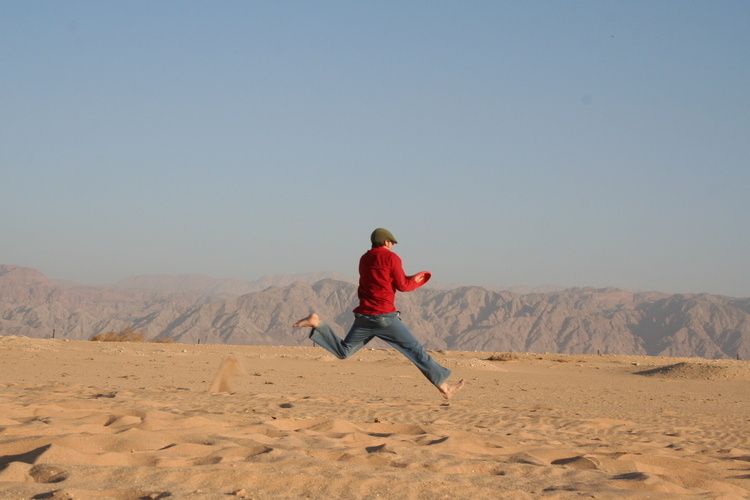
January 23, 2027
4:30 pm
Uris Hall, G08
Primarily for undergraduates, this session offers guidance on how to write a winning proposal for the Fulbright U.S. Student Program. The session will be led by two Fulbright advisors with years of experience. Applying for a Fulbright? We encourage you to attend!
Additional Information
Program
Einaudi Center for International Studies
Reppy Institute for Peace and Conflict Studies
East Asia Program
Southeast Asia Program
Latin American and Caribbean Studies
Institute for African Development
Institute for European Studies
South Asia Program
IES Luigi Einaudi Distinguished Lecture

October 8, 2026
5:00 pm
TBA
Adam Tooze, Shelby Cullom Davis Chair of History at Columbia University
Additional details are forthcoming.
Additional Information
Program
Einaudi Center for International Studies
Reppy Institute for Peace and Conflict Studies
Conference on Myanmar's Borderlands
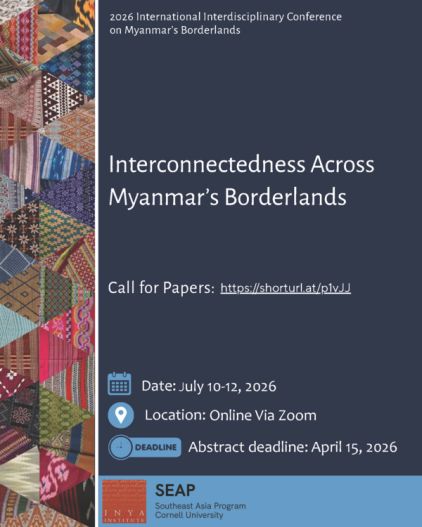
July 12, 2026
12:00 am
2026 International Interdisciplinary Conference on Myanmar's Borderlands (2026 IICMB)
A virtual conference hosted by the Inya Institute (Yangon), Cornell University's Southeast Asia Program (SEAP), and their Southeast Asia-based partners.
Myanmar’s multilayered crisis is profoundly reshaping the socio-economic and geo-political dynamics of the country’s borderlands—regions that have evolved into spaces of exchange, negotiation, and collaboration across geographical, cultural, and linguistic boundaries. The emergence of these spaces has been uneven, unfolding under stringent administrative control and persistent insecurity and marked by fluctuating intensity and periodic pushback from central authorities. Yet, the potential of borderlands to provide local and trans-local communities and networks with opportunities to shape the country’s future remains tremendous.
The conference’s focus on interconnectedness will highlight how inclusive learning and dialogue, local and trans-local community engagement, and recognition of our interdependence with the natural environment can further strengthen borderland dynamics across all markers. It will broaden the conversation on borderland issues that may only be addressed through the prism of ethnicity or framed as issues specific to group identities. It will also encourage dialogue across communities, inviting them to discuss the challenges they face and the aspirations they hold.
invite scholars and students to submit original research papers and/or panels covering any area of Myanmar borders with China, Laos, Thailand, Bangladesh, and India and addressing any of the following topics:
• borderland dynamics and their local and trans-local communities
• networks and partnerships emerging across ethnic, religious, cultural and linguistic boundaries
• communities, networks, and trade across borders
• natural resources and challenges to environmental protection in borderlands
• legal and illegal border migration
• humanitarian relief to refugees and public health in borderlands
• border regimes and governance
• infrastructure(s) and illicit economies and activities
• non-human mobility in borderlands
• formal and non-formal education in borderlands
• other themes related to Myanmar’s borderlands.
In order to preserve the confidentiality of presenters, the conference program will not be available for circulation beyond the group of conference presenters. Conference presenters will also be expected to follow the Chatham House Rule.
The conference will be held entirely online. Due to the time difference between Myanmar and the U.S., panels will be held in the evening for presenters based in Myanmar, Thailand, and elsewhere in Southeast Asia, and the morning for those located in the U.S.
Additional Information
Program
Einaudi Center for International Studies
Southeast Asia Program
Information Session: Fulbright U.S. Student Program

May 18, 2026
5:00 pm
The Fulbright U.S. Student Program supports U.S. citizens to study, conduct research in any field, or teach English in more than 150 countries. The program is open to graduate students, recent graduates, and young professionals. Undergraduate students who wish to begin the program immediately after graduation are encouraged to start the process in their junior year. Recent graduates are welcome to apply through Cornell.
The Fulbright program at Cornell is administered by the Mario Einaudi Center for International studies. Applicants are supported through all stages of the application and are encouraged to start early by contacting fulbright@einaudi.cornell.edu.
Register for the virtual session.
Can’t attend? Contact fulbright@einaudi.cornell.edu.
Additional Information
Program
Einaudi Center for International Studies
Reppy Institute for Peace and Conflict Studies
East Asia Program
Southeast Asia Program
Latin American and Caribbean Studies
Institute for African Development
Institute for European Studies
South Asia Program
Migrations Program
Cornell Classical Chinese Colloquium with Wu Hung
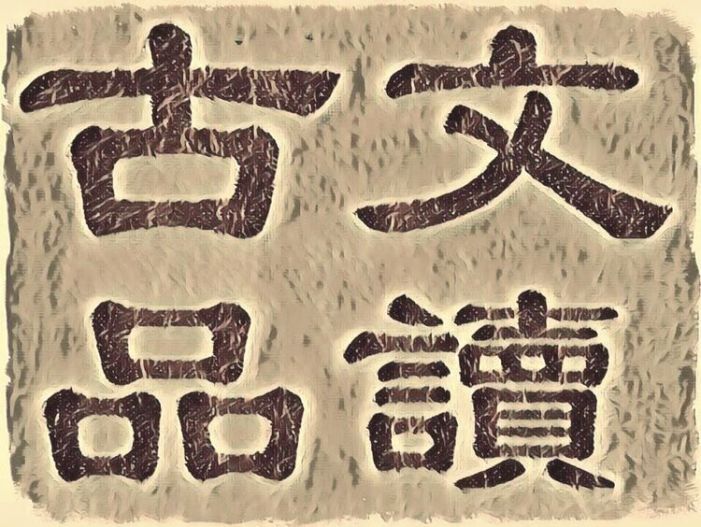
April 24, 2026
3:30 pm
Rockefeller Hall, 374
Speaker: Wu Hung, Harrie A. Vanderstappen Distinguished Service Professor of Art History and the College Chinese Art, University of Chicago
About Cornell Classical Chinese Colloquium
The group meets monthly during the semester to explore a variety of classical Chinese texts and styles. Other premodern texts linked to classical Chinese in Japanese, Korean, and Vietnamese have also been explored. Presentations include works from the earliest times to the 20th century. Workshop sessions are led by local, national, and international scholars. Participants with any level of classical Chinese experience are welcome to attend.
o At each session, a presenter guides the group in a reading of a classical Chinese text. Attendees discuss historical, literary, linguistic, and other aspects of the text, working together to resolve difficulties in comprehension and translation.
o No preparation is required; all texts will be distributed at the meeting.
o Refreshments will be served.
Additional Information
Program
Einaudi Center for International Studies
East Asia Program
Repair/Maintenance: Politics of (In)completeness Graduate Student Symposium
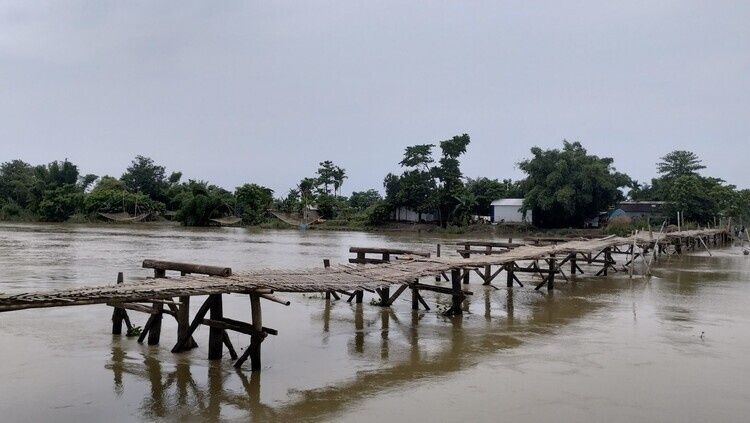
April 24, 2026
9:00 am
Kahin Center
Our world is in dire need of repair. From collapsing infrastructures and ecological devastation to fraying democratic institutions and longue durée effects of colonial violence, the language of repair has become ubiquitous to our understanding of continuity and change. Particularly in South Asia—where accelerating crises of neoliberal capitalism intersect with totalizing forms of political power—projects of repair are everywhere. Scholars writing about repair have invited us to consider repair as an ongoing work by which infrastructures are “earned and re-earned” (Jackson 2015) through everyday care, maintenance, and intervention, while they accrete in formations comprising multiple temporalities, histories, and political rationalities (Anand 2015). Infrastructures, by their nature of incompleteness and uneven accretions of social–material relations, constantly call forth projects of maintenance and repair. But what does it mean to repair? Who repairs, under what conditions, and to what ends?
We invite proposals from students at Cornell University, Syracuse University, and University of Rochester for a one-day graduate workshop, organized by the Cornell South Asia Program, to think with repair as an analytic that cuts across social science and humanistic inquiry. We approach repair not simply as a technical solution to breakdown, but as a material and discursive practice deeply embedded in political economy, historical accountability, and struggles over democracy and equality. Thinking expansively, this workshop aims to understand repair as operating across multiple scales and registers. Repair speaks to material concerns—roads, embankments, housing, energy systems, ecosystems—but also to discursive and institutional domains such as postcolonial reckoning and reparation. Repair may signal continuity and stabilization, reproducing existing arrangements under the guise of maintenance. At other moments, it may open possibilities for rupture or refusal. Attending to repair foregrounds the labor, affect, and politics involved in keeping things going, asking when repair may foreground or foreclose certain kinds of prefigurative politics. The workshop aims to create an interdisciplinary space for collective thinking and feedback, welcoming work at all stages—from early conceptual explorations to advanced drafts. Beyond the single-day event, we hope this gathering will foster an ongoing conversation about how repair, as both practice and analytic, can help us critically apprehend contemporary crises and imagine more just futures in and beyond South Asia.
Please submit abstracts with a title and under 250 words by Friday, February 27, at https://forms.gle/FVBV3qEjqr8b8RcT8. Contributions may draw from anthropology, history, sociology, political theory, geography, architecture, environmental studies, global development, science and technology studies, or related fields.
This symposium is supported by a grant from the Central New York Humanities Corridor.
Additional Information
Program
Einaudi Center for International Studies
South Asia Program
From Sand Dunes to Exotic Hard Timber Forests: An Environmental History of Coastal Vietnam
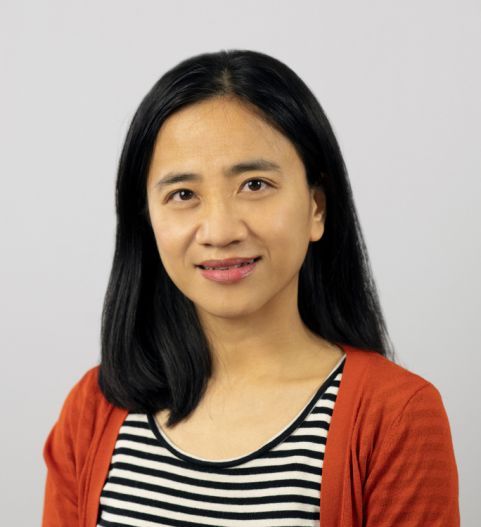
April 23, 2026
12:15 pm
Kahin Center
Gatty Lecture Series
Join us for a talk by Thuy Linh Nguyen, Associate Professor of History from Mount Saint Mary College.
This Gatty Lecture will take place at The Kahin Center, 640 Stewart Ave. Lunch will be served. For questions, contact seapgatty@cornell.edu.
Abstract
My presentation explores the environmental history of the French introduction and mass planting of exotic timber species, such as Casuarina equisetifolia—commonly known as filao—and eucalyptus, to reforest and stabilize the vast moving sand dunes covering the majority of Vietnam’s 2000-mile coast, highlighting their effects on the coastal environment and indigenous communities. This research questions the colonial stereotype that portrayed coastal sand dunes as empty and barren landscapes devoid of vegetation. In contrast, as my presentation demonstrates, the ecological multiplicity of the dunes offers a new lens for examining various topics, including traditional knowledge, local economies, resources, property, land reclamation, and colonial state power.
About the Speaker
Thuy Linh Nguyen is an Associate Professor of History at Mount Saint Mary College in Newburgh, NY. Dr. Nguyen is a historian of modern Vietnam. A native of Vietnam, she received her PhD in History from the University of Pennsylvania. She is currently working as Associate professor of History at Mount Saint Mary College. Newburgh, NY. Her first book, Childbirth, Maternity and Medical Pluralism in French Colonial Vietnam, 1880–1945 (University of Rochester Press, 2016), examines the interactions between French colonial medicine and Vietnamese childbirth practices and their impact on maternal and infant health care. Her second book, Vietnam’s Coal Frontier: Mining, Environment and Empire (Cambridge University Press, November 2025), explores the environmental, economic, and social history of large-scale coal mining in French colonial Vietnam. She has also published peer-reviewed articles on other topics of modern Vietnamese history.
Additional Information
Program
Einaudi Center for International Studies
Southeast Asia Program
The Technopolitics of Nuclear Latency: How Isolated States Use Nuclear Technology to Engage the West
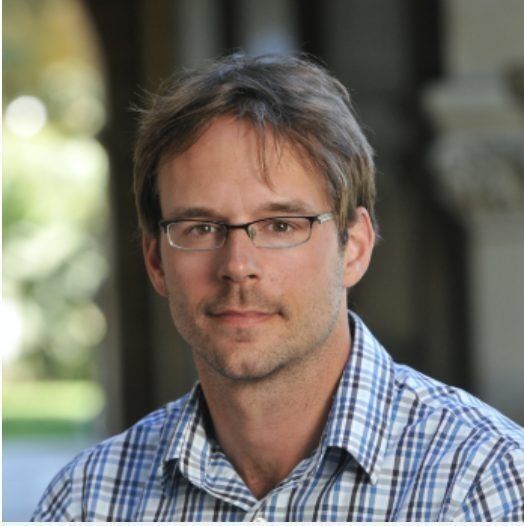
April 23, 2026
12:00 pm
Uris Hall, G08
Why do isolated latent proliferators insist on retaining some of their nuclear capabilities in nonproliferation settlements? Prominent scholarship on nuclear proliferation shows that weak states have used latent nuclear capabilities like uranium enrichment and plutonium reprocessing to draw Western states into negotiations and extract concessions. But when theories of nuclear latency are applied to isolated states like North Korea and Iran, scholars undertheorize those regimes’ political aspirations and black box their demands as generic “rewards” for nuclear restraint. This leads scholars to overlook the credibility deficits of the political commitments that superpowers make in nonproliferation agreements, and to misinterpret the nuclear-latency strategies of isolated regimes seeking to address those credibility challenges. This article analyzes the technopolitical strategies that North Korea and Iran used as they sought to keep Western states engaged and hold them to their commitments. Through a mixture of technical and political analysis, I identify a repertoire of nuclear latency strategies by which both states have sought to simultaneously signal nuclear capability and restraint while retaining nuclear latency in reserve to incentivize future engagement from the West.
About the speaker
Christopher Lawrence is Assistant Professor of Science, Technology and International Affairs in Georgetown University's Walsh School of Foreign Service. He studies the histories of U.S. nonproliferation engagement with North Korea and Iran, as well as the epistemic communities in the West that create knowledge about those countries’ nuclear programs. His academic writing has been published in International Security, Social Studies of Science, Journal of Applied Physics, and IEEE Transactions on Nuclear Science. He has also written policy analysis for various online publications, including Bulletin of Atomic Scientists and War on the Rocks.
Host
Reppy Institute for Peace and Conflict Studies, part of the Einaudi Center for International Studies
Additional Information
Program
Einaudi Center for International Studies
Reppy Institute for Peace and Conflict Studies
Concepts, Categories of Knowledge, and Buddhist Imaginary: Burmese History and Semantic Shifts in Concepts
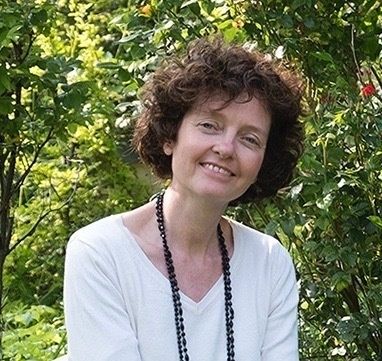
April 16, 2026
12:15 pm
Kahin Center
Gatty Lecture Series
Join us for a talk by Aurore Candier, Associate Professor of History and Director of the Center for Burma Studies at Northern Illinois University.
This Gatty Lecture will take place at The Kahin Center, 640 Stewart Ave. Lunch will be served. For questions, contact seapgatty@cornell.edu.
Abstract
While living and working in Burma for over twenty years, Aurore Candier conducted research on the evolution of knowledge and concepts among Burmese elites, especially as evolved in their encounters with other cultures in the early and modern periods. Through conceptual history and discourse analysis, Candier has investigated the semantic shifts in Burmese words and concepts through a diachronic corpus made up of texts from different literary genres and traced the progressive changes in the imaginary and thought of the Burmese Buddhist universe. She has explored semantic changes in Burmese concepts and categories of knowledge such as “reform,” “time,” categorizations of “people,” “secular knowledge,” and “astrology.” She has forged an intervention which challenges some of the most basic assumptions of Burmese historiography, especially as conceived of in the classical sense.
About the Speaker
Aurore Candier has been Director of the Center for Burma Studies and Associate Professor of History at Northern Illinois University (USA) since 2024. She is a historian of Burma, where she has conducted research for over two decades, building strong ties with local scholars, students, and artists thanks to her fluency in Burmese. Her work spans pre-colonial Mainland Southeast Asian politics, early 20th-century colonial history, and Burmese intellectual and cultural history. She focuses on the longue durée of ideas and knowledge in Burma and contributes to interdisciplinary projects on astrology and divination in Burmese society.
Additional Information
Program
Einaudi Center for International Studies
Southeast Asia Program
